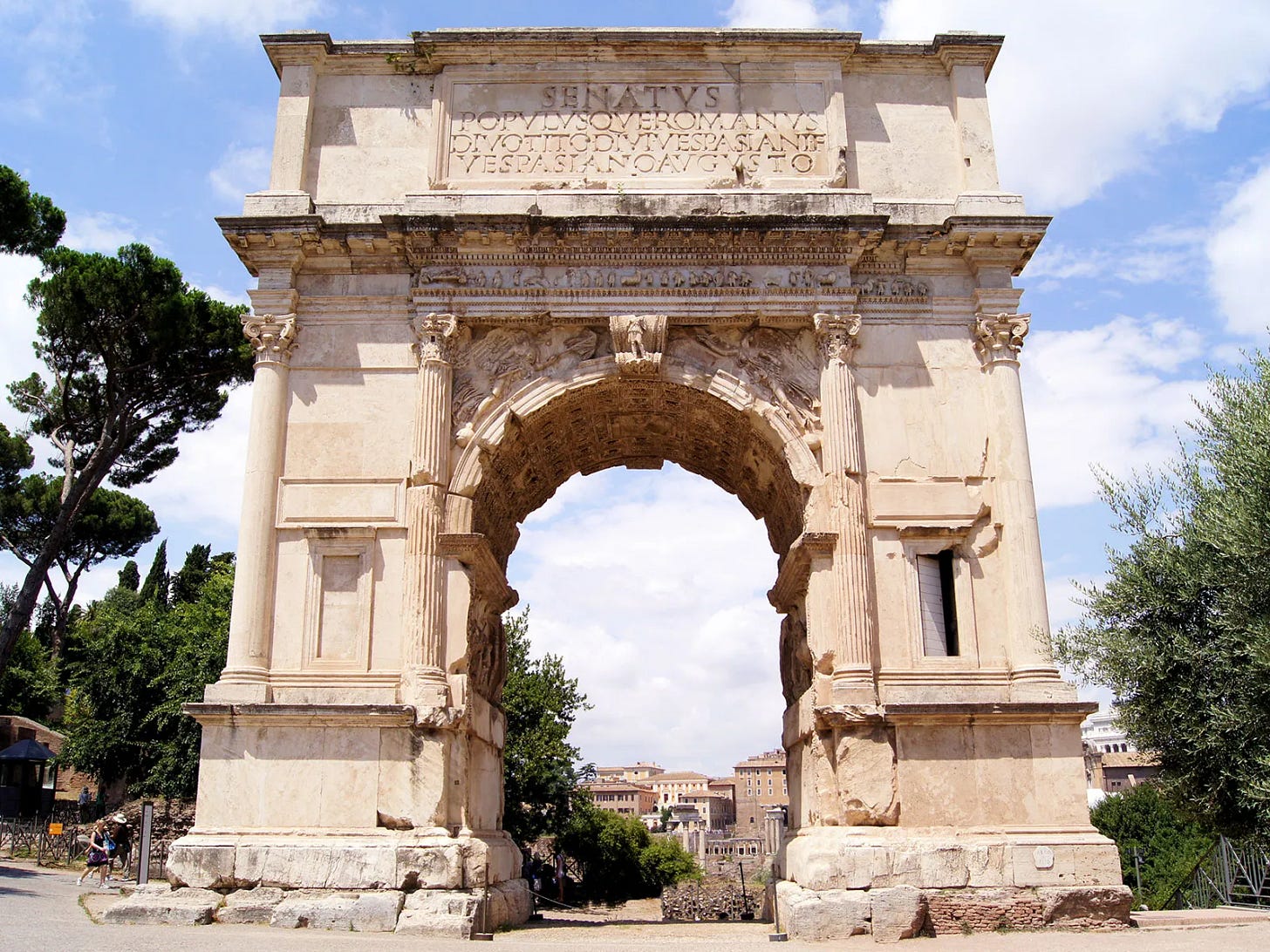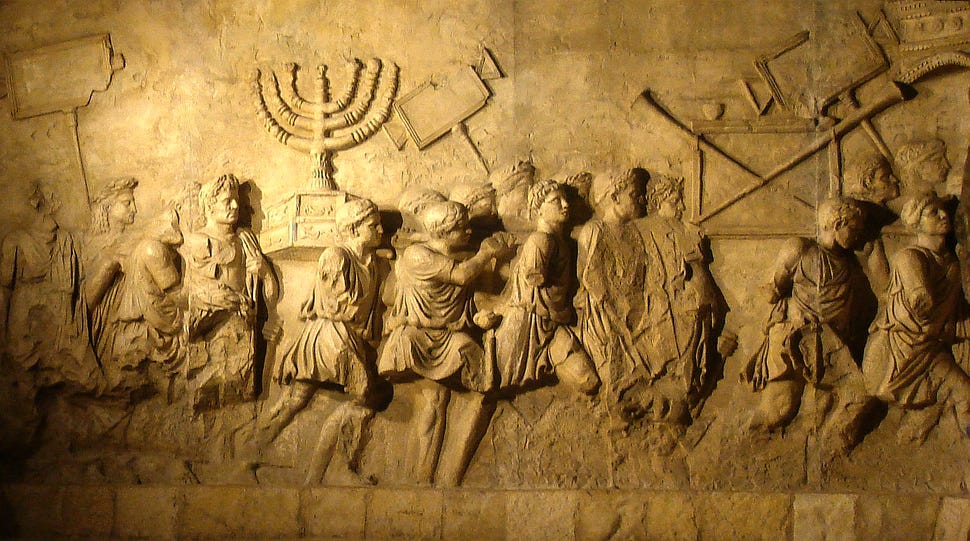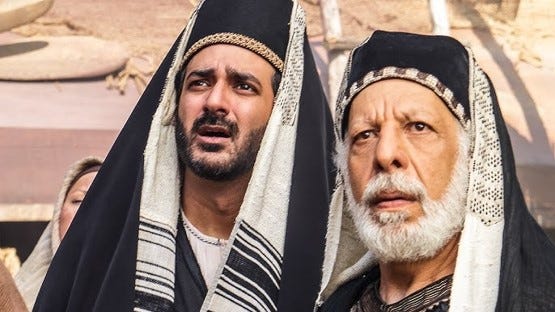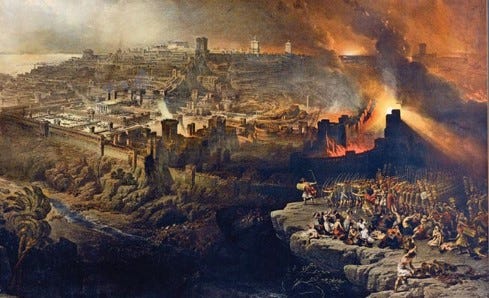Who Was Josephus? 5 Things You Should Know
Get to know the 1st century historian who wrote some of the most widely read books that the world has yet seen
He was born Yosef ben Matityahu in AD 37. He was a member of the Jewish religious class who later became a military commander in the wars against Rome.
Later, he became a Roman prisoner and then a Roman citizen. He took a Roman name and became one of the world's most read historians.
His name was Flavius Josephus.
And we're still talking about him two thousand years after he was born.
Read on below, or check out the video version if you’re so inclined.
The Books That Josephus Wrote
Josephus is most well known for two books. The first is The Jewish War.
It’s his firsthand account of the Jewish revolt against the Roman Empire in 66 AD. And the resulting war fought against Rome under generals Vespasian and Titus.
According to one historian, it is “…perhaps the most influential non-biblical text of Western history.”
If you're like me, you might not have grown up knowing that this war was a big deal.
Judea somehow seemed like some overlooked Roman backwater. But the Jewish War stretched from 66 - 73 AD. It required more than twice as many Roman soldiers as the Roman Parthian Wars of 58 - 63 AD.
The Arch of Titus still stands today commemorating Rome’s ultimate victory. A victory that was much more bitterly contested than the empire anticipated.
The underside of the arch shows the Roman victory procession with spoils looted from the Temple in Jerusalem. Josephus describes the procession in detail in his book. The book he claims as the official history authorized by Vespasian and Titus.
You can tell the importance of the Jewish War based on the location of the monument. It is in the heart of ancient Rome, only a 3 minute walk from the Colosseum, which had been completed the year prior.
Side Note: When I had a chance to visit Rome, I was surprised to learn about the origin of the Colosseum. It was built using funds looted from the Temple. And with labor provided by Jewish slaves captured when Jerusalem fell. No kidding.
The second in the canon of “essential Josephus reading” is the Antiquities of the Jews.
Written in 94 AD, this 20 volume book attempts to provide a comprehensive history of the Jewish people. It was written for Josephus' Roman audience.
The first 10 volumes deal with events recorded in the Bible. The second half of the book begins when the Persian Empire, under Cyrus the Great, was the ascendant global power. And continues to the lead up to the Roman-Jewish Wars.
Both books are important today for people who want to understand the history of the Jewish people. And for those who want to understand what life was like when Christianity was beginning to take root.
But this post isn’t primarily about those books, interesting as they may be. For now, let’s learn a little more about the author. Because man, this guy had quite the life.
Josephus Claimed to be a Pharisee
In his autobiography, The Life of Flavius Josephus, our man claims to have joined the Pharisees as a 19 year old.
And when I was about sixteen years old, I had a mind to make trim of the several sects that were among us. These sects are three: - The first is that of the Pharisees, the second that Sadducees, and the third that of the Essenes…So when I had accomplished my desires, I returned back to the city, being now nineteen years old, and began to conduct myself according to the rules of the sect of the Pharisees, which is of kin to the sect of the Stoics, as the Greeks call them. [The Life of Flavius Josephus, Section 2]
The Pharisees were a group of Jewish scholars and religious experts. They emphasized struct observance of traditions and adherence to the Jewish religious law.
To non-Jews, they are most well known for not getting along well with Jesus. He did call them hypocrites who only cared about exterior appearances, so perhaps we can understand the hard feelings.
In any event, Josephus tells us he was a member of the group. His readers can be confident that he was well acquainted with Jewish religious tradition.
Josephus Fought Against Rome
Josephus was commander of the Jewish forces in the Galilee during the revolt against Rome. The Galilee region was approximately 2,200 square kilometers.
Check him out on this map of the Middle East today.

But Josephus had a short war.
He was captured by the Romans in July of 67 AD after he was surrounded in the fortified Galilean city of Yodfat.
The siege of Yodfat was the second most destructive battle of the entire war.
The Romans, commanded by General Vespasian and his son Titus (yes, the Titus from the later Arch of Titus fame), brought 3 legions with more than 60,000 troops. They besieged the city that Josephus said had 42,000 people total. And they began building a siege ramp to scale the city walls.
After 47 days, the city fell. Some women and infants - 1,200 in total - were taken as slaves. The rest were killed by the Romans or killed themselves.
Josephus and 40 other prominent men in the city were surrounded in a cave. Besides Josephus, they all killed themselves rather than face capture.
This is one reason that some people hold mixed opinions on Josephus. He clearly viewed himself as a pragmatic survivor, but some Jews view his actions as a betrayal.
Note: At the beginning of the fighting in 66 AD, a single legion (the Syrian legion) went to quell the revolt. But eventually, troops from 5 legions entered Judea before Jerusalem was captured in 70 AD.
Josephus Became An Ally to Vespasian
After his capture, Josephus came before the commander of the Roman forces, General Vespasian. And Josephus claimed to have some important prophetic knowledge.
He said that Vespasian would become Emperor or Rome. That probably seemed a little far-fetched at the time. Emperor Nero was only in his 20’s and having a blast being his sadistic self.
But it seems to have made a favorable impression on Vespasian. He kept Josephus as a prisoner, but perhaps looked more kindly on him than he might have otherwise.
Note: Nero was famous for killing his mom. He also killed two of his wives. And the Apostle Paul and Apostle Peter in Rome.
But things were looking up for Josephus in June of 68 AD when Nero died.
Rome was thrown into chaos. It led to the first civil war in the Roman Empire, the Year of the 4 Emperors, which was more like a year and a half (spanned June 68 - December 69).
Vespasian left Judea and made his claim known. He left his son Titus in charge of the war.
In the end, Vespasian secured the loyalty of the army. He defeated the competing claims and the Senate declared him emperor on December 21, of the year 69.
After he became emperor, Vespasian granted Roman citizenship to Josephus. And Josephus assumed the emperor’s family name - Flavius - as a sign of his fealty and appreciation.
Note: Vespasian became the first member of the Flavian dynasty. His eldest son Titus (ruled 79 - 81 AD) and his younger son Domitian (ruled 81 - 96 AD) came after him.
Josephus Moved to Rome After the War
Josephus moved to Rome in 71 AD. But first, the major battle of the war took place.
It was the siege of Jerusalem.
The siege began in April of 70 AD. Titus, still in command of the Roman troops, had 4 legions outside the city walls. The city fell in September, and Josephus records that 1.1 million people died.
While pockets of resistance would remain until 73 AD, the war was no longer in doubt. Many of the Jews in Judea ran from the Romans or were sold into slavery.
The Romans destroyed the city and burned it to the ground. The temple, which had been the focal point of the Jewish faith, was also destroyed.
Note: The Western Wall, a remnant of the retaining wall that surrounded the Temple Mount, was all that was left standing. It’s still standing today.
In 71 AD, Josephus traveled to Rome in the retinue of Titus.
He had been there before as a Jewish citizen (in 64 AD to negotiate with then-emperor Nero about some Jewish hostages). Now he was in Rome as a citizen of the empire. The empire that had devastated his country, destroyed his capital city, and killed over a million of his fellow countrymen.
At the same time he owed his life to the Flavians. And so his name and his identity became Romanized. He spent the rest of his life in Rome, where he wrote under the patronage of the Flavian emperors.
Note: His first book, The Jewish War, is the only eyewitness account of the war. The historian Tacitus later wrote about the war in his Annals, published in the early second century AD.
Josephus Was Fluent in 3 Languages
Josephus wrote all his works in Greek, the common language in the Roman Empire.
He was fluent in Latin, which was the official language of the empire. Latin was the language for all legal, military, and administrative matters.

And he also spoke Aramaic. Aramaic was the common language of Judea at the time, including in the Galilee region.
It’s one more example of how he was a bridge between very different cultures. He was both Jewish and Roman, which is why he’s often described as the “Jewish-Roman historian.”
Reading Josephus
It’s said that “history is written by the victors.” This is usually true. And can help critical readers as they engage with the past. In the case of Josephus it’s less clear cut.
He’s writing on behalf of the victors but also with an eye towards defending the losers. His complicated background gives him a unique perspective as a historian.
He came to adopt Roman cultural and political norms. He moved in elite circles in Roman society. And yet in many ways, he’s a defender of Jewish culture and faith to his Roman readers, even if many of his fellow Jews considered him a turncoat.
Like everyone, he's not without his own agenda and biases. But he’s considered to be a generally reliable source, although one with pro-Jewish leanings who also owes loyalty to Rome.
He’s also an important source, having written some of the most influential books in the entire world.
Next week: we’ll see what Josephus had to say about one of the key figures in the Gospel accounts: John the Baptist.












20 volumes of books! This article makes me interested in reading the Jewish wars..